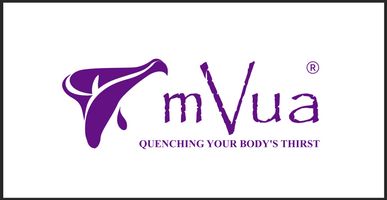Herbal hair treatments are made from natural ingredients like herbs, oils, and plant extracts. They offer a natural alternative to commercial hair products and are popular for promoting hair health and addressing specific hair concerns. Some common herbal treatments include hair masks, oils, and rinses, each with their unique benefits. These treatments can help with issues such as dryness, dandruff, and hair loss. When using herbal treatments, it's important to understand the specific ingredients and their effects on different hair types to achieve the desired results.
Using herbal treatments for your hair care can bring several benefits. Here's why you should consider it:
Herbal treatments for hair often incorporate a variety of common herbs known for their beneficial properties. Some popular herbs used in hair treatments include rosemary, chamomile, and aloe vera. These herbs are known for their ability to promote hair strength, stimulate growth, and soothe the scalp. When combined with other natural ingredients, these herbs can provide a nourishing and rejuvenating experience for your hair.
Making your own herbal hair treatments at home is a fun and cost-effective way to enhance your hair care routine. By using natural ingredients like coconut oil, aloe vera, and rosemary, you can create nourishing masks and treatments that help to promote healthy hair and scalp. Here are a few simple DIY herbal hair treatment recipes to get you started:
Experimenting with these natural ingredients allows you to customize your hair treatments to meet your specific needs, all while avoiding harsh chemicals found in many commercial products.
You can apply herbal treatments to your hair by mixing the herbal ingredients with a carrier oil, such as coconut or olive oil, to create a hair mask. Apply the mixture to your hair from the roots to the tips, ensuring it's evenly distributed. Let it sit for at least 30 minutes before rinsing it out with warm water. For the best results, repeat this process once or twice a week to promote healthier and more lustrous hair.
When incorporating herbal treatments into your hair care routine, start by researching different herbs and their benefits for hair. Look for herbs that target your specific hair concerns, such as promoting hair growth, reducing dandruff, or adding shine. You can use herbs in various forms, such as oils, powders, or teas. Experiment with different herbal treatments to find the ones that work best for your hair, and consider consulting a dermatologist or trichologist for personalized recommendations.
When using herbal treatments for your hair, it's important to be aware of potential side effects and take necessary precautions. Herbal treatments can sometimes cause allergic reactions or skin irritations, so it's crucial to perform a patch test before applying any new herbal product to your scalp or hair. Additionally, certain herbs may have specific contraindications for individuals with certain medical conditions or those who are pregnant or nursing. Always consult with a healthcare professional or herbalist before introducing new herbal treatments into your hair care routine to ensure your safety and well-being.
There are various professional herbal hair treatment options available that can help transform your hair care routine. These treatments may include herbal scalp massages, herbal hair masks, and herbal hair steaming. Professional herbal hair treatments utilize natural ingredients and essential oils to nourish and revitalize the hair and scalp, promoting overall hair health. Additionally, these treatments can help address specific hair concerns such as dryness, breakage, and scalp issues. When seeking professional herbal hair treatments, it's essential to consult with a qualified hair care professional to determine the most suitable option for your individual hair needs.
Herbal hair treatments use natural ingredients like aloe vera, coconut oil, and hibiscus to nourish and strengthen your hair. These ingredients are rich in vitamins, minerals, and proteins that can help improve the health of your hair. For example, aloe vera contains enzymes that can repair dead skin cells on the scalp, while coconut oil can prevent protein loss in hair and promote growth. Hibiscus is known for its ability to stimulate hair growth and prevent premature graying. By incorporating herbal treatments into your hair care routine, you can harness the power of nature to achieve healthier, more vibrant hair.
Herbal treatments can offer a natural and holistic approach to hair care. By embracing herbal remedies, you can nourish your hair and scalp while avoiding harsh chemicals often found in commercial products. Experimenting with herbal treatments can be an enjoyable and rewarding experience, allowing you to customize your hair care routine to suit your specific needs. Whether you choose to incorporate herbal teas, oils, or masks into your regimen, the possibilities for transforming your hair care ritual are endless. Embrace the power of nature and enjoy the journey to healthier, more radiant hair!
